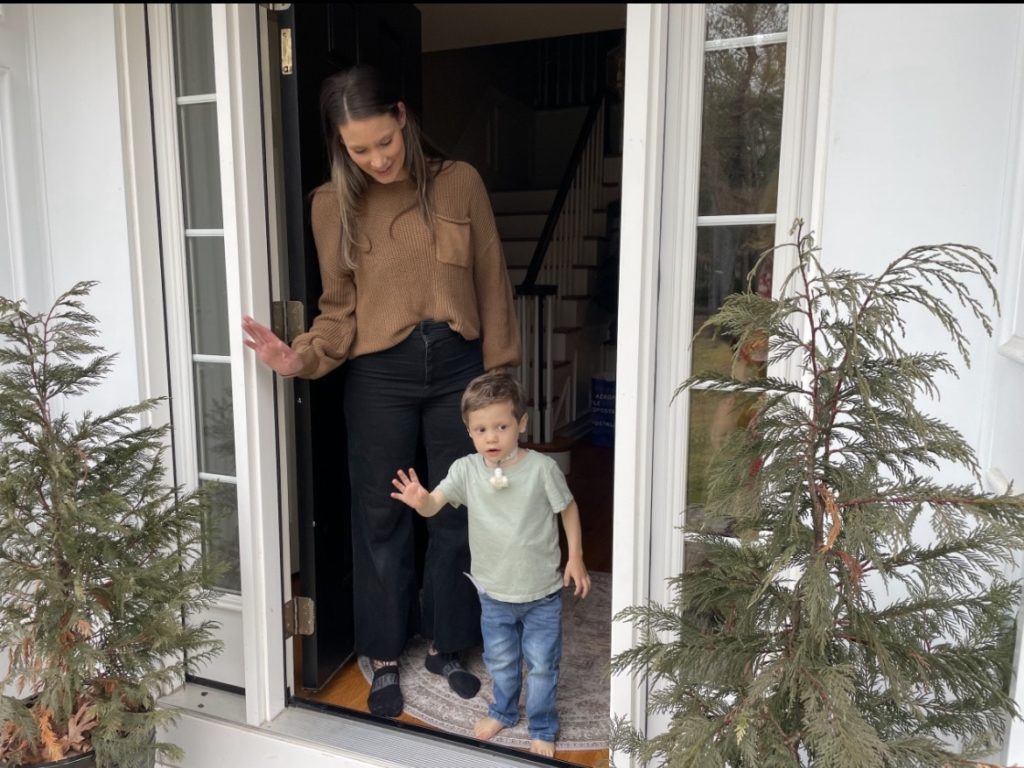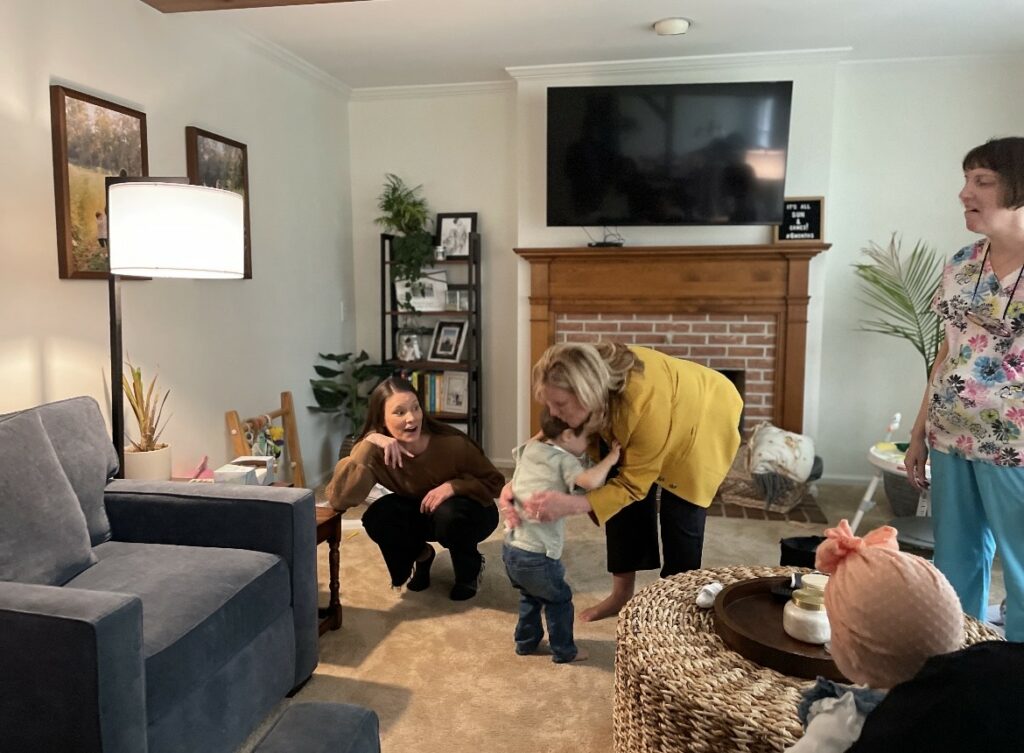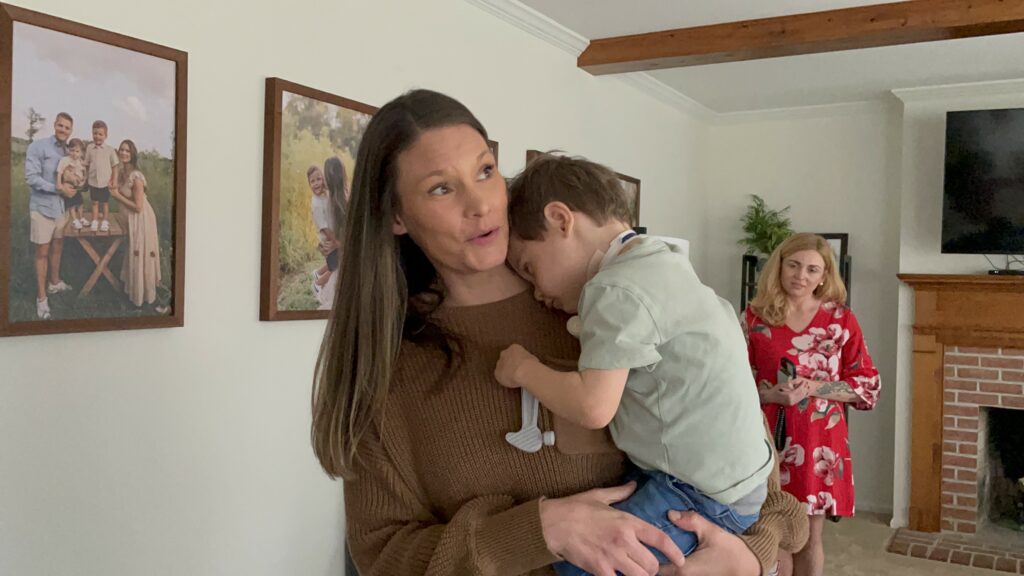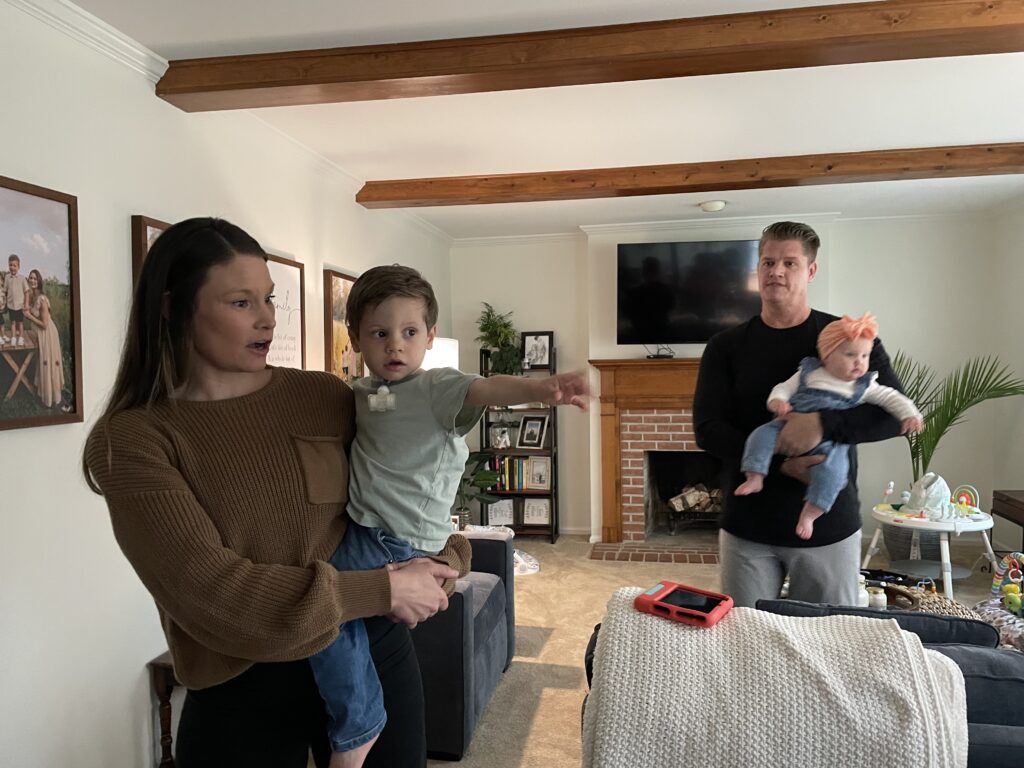
“He’s intelligent, he knows everything, he knows who people are,” Ashley Lambert said of her 3-year-old son, Ford, who needs round-the-clock care at home.
Ford Lambert is your typical toddler.
“He’s intelligent, he knows everything, he knows who people are,” Ashley Lambert said of her 3-year-old son. “He’s mouthing, he’s signing. He shows you everything that he wants.
“You ask, ‘What do you want?’ He will show you.”
Ford was born prematurely and has Bronchopulmonary Dysplasia, a form of chronic lung disease that affects newborns, and subglottic stenosis, a narrowing of the airway below the vocal chords and above the trachea.
He breathes through a tracheostomy tube. For curious classmates of Ford’s older brother at preschool, Ashley had to explain that the tracheostomy tube is Ford’s nose and “We can’t touch that; he has a boo boo (on his windpipe).”
Ford currently receives nursing 16 hours a day with the help of BAYADA Home Health Care’s day and night-shift coverage, for which the Lamberts had to fight.
“They wanted to take him down to 12 hours (of care),” Ford’s dad Adam noted. “We had to fight tooth and nail … We needed at least 16 hours.
“How do you support your family when you don’t have any help?”
The Lamberts are in a unique situation. Ashley is a NICU (Neonatal Intensive Care Unit) nurse and works some of Ford’s day hours through STAR Pediatrics.
“I am now only per diem there, because I can’t work 15 hours at a time, then come home to work 40 hours with (Ford),” she acknowledged. “It’s definitely a unique situation, but I still couldn’t survive without having a nurse at my house.”
Ford needs “eyes on him 24 hours” a day, his mother added. “If there’s not a nurse here, it’s one of us.”
The nurse day shift is 7 a.m. to 3 p.m. or 8 a.m. to 4 p.m. and overnight shifts are 10 p.m. to 6 a.m. Ashley said she and her husband were very fortunate because she has a medical background. After a year-long stay at the Children’s Hospital of Philadelphia, Ford has been home and not been admitted since.
The Lamberts are among hundreds of residents who’ve asked the state to increase private duty nursing funding in the state budget by June 30 to attract more nurses to home-care jobs. Nurses can earn more working elsewhere, and it’s important to create incentive so families can keep getting the care that they need, advocates say.
Assemblywoman Carol Murphy recently met the Lambert family at their Medford home to hear their experiences and struggles. The family also includes Ford’s two siblings, a 4-year-old brother and a 6-month-old sister.

Assemblywoman Carol Murphy gives Ford a hug during a visit with his parents to discuss state funding for his care.
The Lamberts struggle to juggle their full-time jobs and the needs of their three children, all the while getting the nursing care Ford needs and maintaining work and sleep schedules for themselves and Ford’s siblings.
When the Lamberts brought their son home from the hospital, they were met with a limited amount of trach vent nurses, so they took seven weeks of training on the medical device to bring their son home.
“Our day-shift nurse came in and she had no trach vent experience, but was willing to learn,” Ashley recalled. “I had her come in (and) taught here everything she does now.”
The Lamberts said extended family members “are too scared” to watch Ford, which they understand. But the Lamberts’ future is uncertain regarding whether Ford will need to breathe through a tracheostomy tube for the long term.


The Lamberts want to help others avoid the red tape involved in funding home care.
Meanwhile, the Lamberts share their story and hope to limit the red tape involved with relying on home care.


